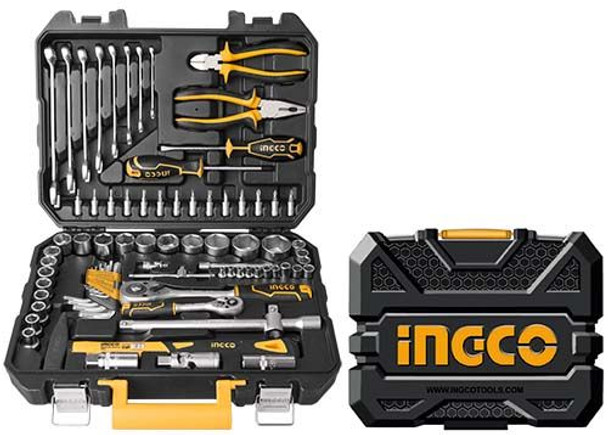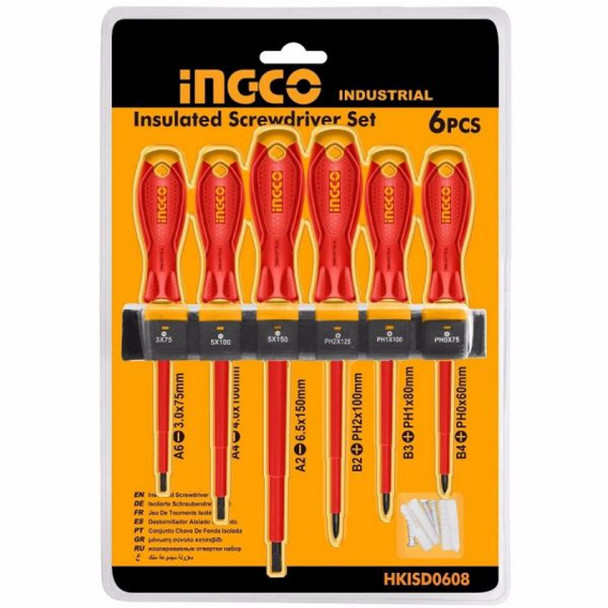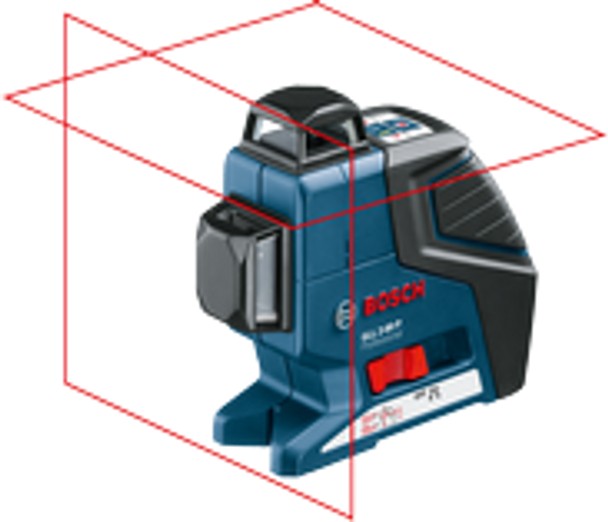Mechanic Tool Kits for Home Workshops
Creating a functional and efficient home workshop requires more than just a passion for DIY projects; it requires the right tools. Whether you're a seasoned mechanic or a weekend warrior, having a well-organized mechanic tool kit is essential. This comprehensive guide will help you understand the importance of a mechanic tool kit for your home workshop, what tools to include, and how to maintain your kit for maximum efficiency.
Key Takeaway
A well-equipped mechanic tool kit is essential for any home workshop. Invest in high-quality tools and proper storage solutions to ensure your toolkit meets your needs for various repair and maintenance tasks.
Why a Mechanic Tool Kit is Essential for Home Workshops
A well-equipped mechanic tool kit is indispensable for any home workshop, offering the efficiency, safety, and versatility needed to handle a wide range of DIY repairs and maintenance tasks. With the right tools at your fingertips, you can tackle everything from basic fixes to complex projects, ensuring that each job is done accurately and efficiently. Moreover, a comprehensive tool kit enhances safety by reducing the risk of accidents associated with using improper tools. It also provides significant cost savings by enabling you to perform your own repairs rather than relying on expensive professional services. Ultimately, a mechanic tool kit empowers you to maintain and repair your vehicles and machinery with confidence, making it an essential component of a functional and productive home workshop.
Having a mechanic tool kit in your home workshop is crucial for several reasons:
- Efficiency: The right tools allow you to perform tasks quickly and efficiently, saving time and reducing frustration.
- Safety: Proper tools mitigate the risk of accidents and injuries by ensuring tasks are performed correctly.
- Quality of Work: High-quality tools produce better results, leading to more successful and satisfying projects.
- Cost Savings: Performing your repairs and maintenance can save significant money compared to hiring professionals.

 77 PCS Tools Set INGCO HKTHP20771
77 PCS Tools Set INGCO HKTHP20771
Essential Tools for a Home Mechanic Tool Kit
1. Sockets and Ratchets
Sockets and ratchets are fundamental for any mechanic tool kit. A comprehensive set should include:
- Metric and Standard Sockets: Covering a range of sizes to handle different fasteners.
- Ratchets: With comfortable grips and multiple tooth counts for varying levels of precision.
- Extensions and Adapters: These are used to reach difficult areas and adapt socket sizes.
2. Wrenches
Wrenches come in various types and sizes, each serving a specific purpose:
- Combination Wrenches: Featuring an open end and a box end, useful for multiple applications.
- Adjustable Wrenches: Versatile tools that can fit various sizes of bolts and nuts.
- Torque Wrenches: Essential for ensuring bolts are tightened to the manufacturer's specifications.
3. Screwdrivers
A variety of screwdrivers is necessary for different types of screws:
- Flathead and Phillips: The most common types, used for a variety of applications.
- Torx and Hex: For more specialized screws, often found in electronics and vehicles.
- Precision Screwdrivers: For small screws in delicate components.
 6 PCS Insulated Screwdriver Set INGCO HKISD0608
6 PCS Insulated Screwdriver Set INGCO HKISD0608
4. Pliers
Pliers are versatile tools that can grip, cut, and bend materials:
- Needle-nose Pliers: Ideal for reaching into tight spaces and precision work.
- Slip-Joint Pliers: Adjustable for various tasks.
- Locking Pliers: Can hold objects securely in place.
5. Hammers
A selection of hammers is necessary for various tasks:
- Ball Peen Hammer: Used for metalworking.
- Claw Hammer: For general use, including driving and removing nails.
- Dead Blow Hammer: Delivers a controlled strike without rebound.
6. Diagnostic Tools
For modern vehicles, diagnostic tools are essential:
- OBD-II Scanner: For reading and clearing diagnostic trouble codes.
- Multimeter: Measures voltage, current, and resistance in electrical components.
 Bosch Professional Line Laser Bosch GLL 2-80
Bosch Professional Line Laser Bosch GLL 2-80
7. Utility Knife and Tape Measure
Utility knives and tape measures are indispensable for cutting materials and measuring accurately.
8. Portable Work Light
A portable work light ensures adequate lighting in dark or confined spaces, improving visibility and safety.
9. Tool Storage Solutions
Tool storage solutions such as toolboxes, tool chests, and roll-up pouches help keep your tools organized and easily accessible.
Maintaining Your Mechanic Tool Kit
Proper maintenance of your mechanic tool kit is crucial to ensure its longevity, reliability, and optimal performance. Regularly cleaning your tools to remove dirt, grease, and rust prevents wear and prolongs their life. Store your tools in a dry, cool place using organized toolboxes or chests with compartments to keep them safe from damage and easy to find. Periodically inspect each tool for signs of wear or damage, replacing any that are compromised to maintain safety and efficiency. Lubricate moving parts, such as ratchets and pliers, to ensure smooth operation and prevent rust buildup. By dedicating time to regular maintenance, you can keep your tool kit in excellent condition, ready for any repair or maintenance task that comes your way.
1. Regular Cleaning
Keep your tools clean and free from dirt and grease. Regular cleaning prevents rust and ensures tools are always ready for use.
2. Proper Storage
Store your tools in a dry, cool place to prevent rust and damage. Use toolboxes or tool chests with compartments to keep tools organized and protected.
3. Regular Inspection
Inspect your tools regularly for signs of wear or damage. Replace any damaged tools promptly to ensure safety and efficiency.
4. Lubrication
Lubricate moving parts of tools, such as ratchets and pliers, to ensure smooth operation and prevent rust.
Frequently Asked Questions (FAQs)
What are the most essential tools for a beginner's home mechanic tool kit?
A beginner's tool kit should include sockets and ratchets, wrenches, screwdrivers, pliers, a hammer, and a utility knife.
How do I choose the socket or wrench that is the right size?
Use a socket or wrench that fits snugly over the bolt or nut. Metric tools are measured in millimeters, while standard tools are measured in inches.
What is the difference between a standard and a metric tool?
Standard tools are measured in inches and fractions of inches, while metric tools are measured in millimeters. Ensure you have both types to cover all possible sizes.
How should I store my tools to keep them in good condition?
Store your tools in a dry, clean environment. Use toolboxes or chests with compartments to keep them organized and protected from damage.
Why is it important to have a portable work light?
A portable work light improves visibility in dark or confined spaces, reducing the risk of mistakes and injuries during repairs.
How often should I clean and inspect my tools?
Regularly clean and inspect your tools at least once a week. This ensures they remain in good condition and your tool kit stays organized.
Can I add additional tools to my mechanic tool kit?
Yes, many tool kits allow for customization. You can add or replace tools as needed to suit your specific requirements.
Ready to upgrade your home workshop with the best mechanic tool kits? Visit GZ Industrial Supplies for a wide range of high-quality tools and storage solutions. For inquiries, email us at sales@gz-supplies.com. Equip yourself with the best tools today!
Recent Posts
-
Why Serious Mechanics Are Switching to Japanese-Made Shinano Air Tools
Japanese-Made Shinano Air Tools Key takeaway: Shinano’s tight-tolerance, twin-hammer designs d …Apr 24, 2025 -
Top 10 Hand Tool Brands for Professionals
Introduction When it comes to professional hand tools, quality, durability, and reliability are para …Apr 23, 2025 -
HOW DOES CORROSION INHIBITOR WORK
Introduction Corrosion has posed a lot of problems to various companies and industries; by interfer …Apr 22, 2025





